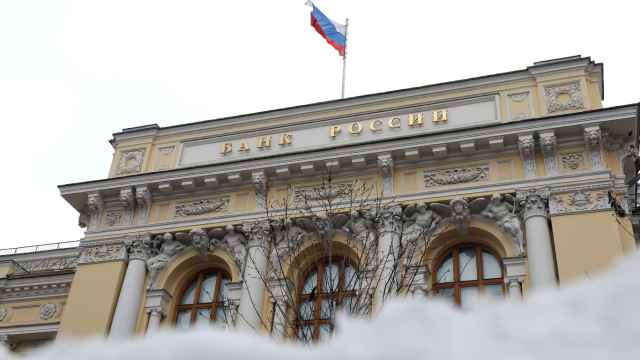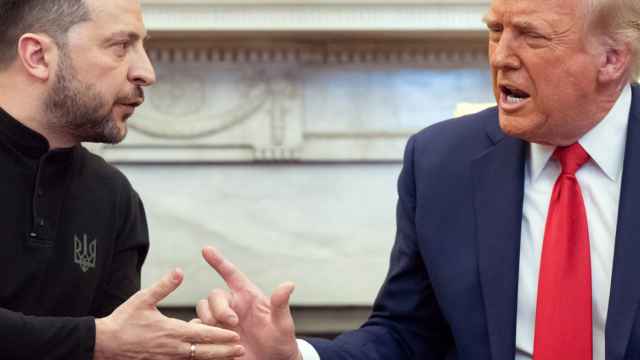People who are surprised by certain recurrences in Russian history apparently are not aware that popular culture changes very slowly, if at all.
U.S. history is a good example. The U.S. emancipated itself from Britain 250 years ago, forming a republic intended to be unique. Yet even today, our political and legal culture is thoroughly imbued with concepts and values inherited from Britain.
Russians are no different, carrying in their minds and hearts the fears and hopes inherited from their ancestors. The most ambitious and cruel attempt undertaken in human history to create a new "Soviet man" proved a dismal failure. When I read public opinion polls conducted in post-Soviet Russia, I am struck by how many of the opinions expressed resemble those of tsarist Russia.
Take, for example, the political system. Russians mistrust democracy because they identify it with chaos and crime. When asked what they value more — security or freedom — they overwhelmingly opt for security, apparently unaware that the two are not incompatible.
They want their government to be strong to protect them from foreign and domestic enemies, most of which are imaginary. They also have believed for centuries that Russia has a right to be a superpower, feared rather than respected.
Another recurrent theme in Russian behavior is low respect for law and private property. Until 1864, Russia had no legal system worthy of the name. Foreign travelers to pre-1864 Russia often noted that Russians were subject to arbitrary judgments by the tsar and his officials. And even after the 1864 judiciary reforms were enacted, political crimes were judged not by courts but by administrative bodies. Contempt for law, therefore, survives to this day. According to public opinion polls, the majority of Russians regard the courts as corrupt.
Historically speaking, private property is the basis of freedom. In countries where it is respected, the government depends on its citizens for essential income and thus must respect their rights. Until the late 18th century in tsarist Russia, private property, for all practical purposes, did not exist. All the land, the main source of wealth, belonged to the monarch, who leased it to his nobles in return for service. He not only ruled the country, he literally owned it.
Furthermore, owing to the institution of the rural community, the peasants, who made up four-fifths of the country's population, did not own the land they tilled but merely held it in temporary possession. As a result of this historical heritage, reinforced by seven decades of communism, Russians have a low opinion of property as a basic human right.
Another significant inheritance from the past is hostility to the outside world, especially Europe and the U.S. This attitude has religious origins. The Russian Orthodox Church, which for centuries dominated thinking and attitudes in the country, inculcated in its followers the belief that Western religions were heretical. This view became secularized in modern times and translates into a sense that the West is hostile. Asked in 1998 "Do you feel European?" a mere 12 percent of the respondents replied "yes, always," whereas 56 percent said "practically never." As a result, many Russians perceive themselves as isolated from the outside world.
I believe that once a majority of Russians start realizing that their country is not threatened from the outside, they will be able to devote themselves more assiduously to changing their attitudes and institutions, among which rule of law and human rights are the most important.
Richard Pipes, a historian and professor emeritus at Harvard University, is author of "Russia Under the Old Regime" and "Property and Freedom." This comment appeared in Vedomosti.
A Message from The Moscow Times:
Dear readers,
We are facing unprecedented challenges. Russia's Prosecutor General's Office has designated The Moscow Times as an "undesirable" organization, criminalizing our work and putting our staff at risk of prosecution. This follows our earlier unjust labeling as a "foreign agent."
These actions are direct attempts to silence independent journalism in Russia. The authorities claim our work "discredits the decisions of the Russian leadership." We see things differently: we strive to provide accurate, unbiased reporting on Russia.
We, the journalists of The Moscow Times, refuse to be silenced. But to continue our work, we need your help.
Your support, no matter how small, makes a world of difference. If you can, please support us monthly starting from just $2. It's quick to set up, and every contribution makes a significant impact.
By supporting The Moscow Times, you're defending open, independent journalism in the face of repression. Thank you for standing with us.
Remind me later.





